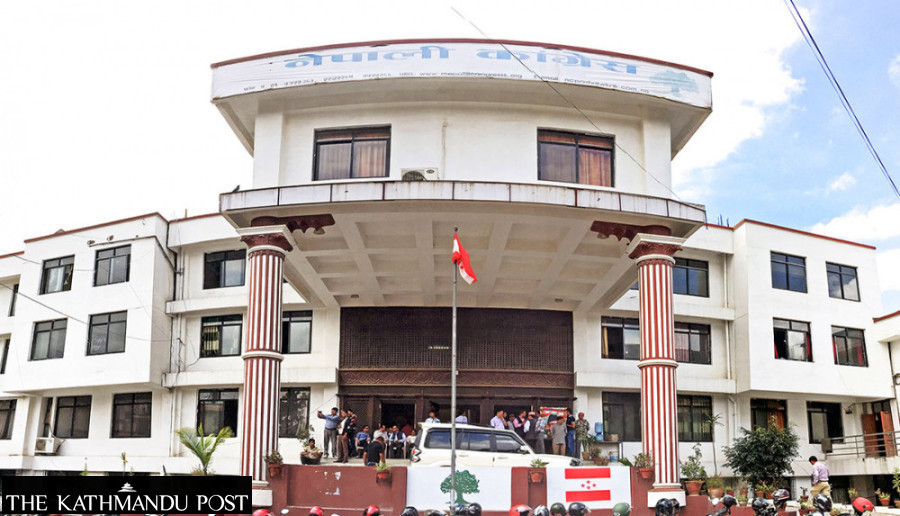National
Congress to draft party’s education policy
Organisers say a draft policy will be prepared after the Kathmandu interaction. This will be taken for discussions across the country.
Post Report
The ruling Nepali Congress is working to devise an education policy after rigorous inter- and intra-party discussions along with inputs from experts.
The education department of the country’s largest political party will formally commence the drafting process with an inception meeting on Wednesday. Congress President Sher Bahadur Deuba will attend the interaction with representatives on various aspects of education. Wednesday's interaction will set the tone for the discussions in the coming days, according to the organisers.
“The country enforced various education policies in different periods. However, there were no adequate discussions before they were drafted,” said Nain Singh Mahar, chief of the department and the party’s central committee member.
“In the lack of a widely accepted policy, there is no consistency in handling the education sector. It keeps changing with every change in the government.”
Mahar said the finalised policy will be the blueprint to guide the education sector—at least for the Congress. He, however, added that attempts will be made to make the policy acceptable to other parties.
The policy deliberations will be based on five thematic issues—early childhood development; school education; technical education; higher education; and the international trend and practice. Noted education experts including Kedar Bhakta Mathema, Tirtha Raj Khaniya and former minister and secretary Vidyadhar Mallik will make presentations on the different thematic issues in the inception interactions.
The organisers say a draft policy will be prepared after the Kathmandu-based interaction. This will be taken for discussions across the country. The draft will be discussed at 165 federal constituencies, then in every local unit and finally at the ward level. It will also be discussed with cross-party leaders, former bureaucrats and policymakers at the national level before giving it a final shape.
“The suggestions gathered from different layers of discussions will be incorporated in the final draft, which our party will endorse,” said Mahar. The Congress has already decided to prepare a broader education policy to cover the entire education sector.
If Mahar’s claims are anything to go by, the comprehensive policy will also clearly mention the funding modality while also having provisions for the use of Information Technology and Artificial Intelligence in the classrooms.
Funding in education remains a debatable issue.
Calls are growing for barring private schools from making continued profits. The High Level Education Commission in August 2018 had proposed converting private schools into trusts in 10 years.
The commission prepared a report after rigorous discussions and consultations with the stakeholders. On January 15, 2019, it was submitted to then-prime minister KP Sharma Oli who has been reappointed to the position.
However, Oli was not interested in implementing the recommendations, so he never made the report public. His successor, Sher Bahadur Deuba, also maintained a similar policy. Finally, it was made public in June by the erstwhile Pushpa Kamal Dahal-level government at the initiation of then-education minister Sumana Shrestha.
The recommendation to convert the schools into trust, according to the commission, would stop the commercialisation of education.
The commission based its recommendations on Article 31(2) of the constitution, which makes the state responsible for ensuring compulsory basic and free secondary education for all. The commission said that leaving private educators to “generate profit”, as they are currently doing, would violate the constitutional spirit.
“It’s true that the constitution envisions free education but it also gives space for the private sector. We will try to find modality where the private schools can operate ensuring there is no commercialisation in education,” said Mahar.




 13.12°C Kathmandu
13.12°C Kathmandu













